It really is extraordinary how scarcely a month goes by without the appearance of yet another superb opera recording on DVD. There are weaker items issued as well, of course, but a masterpiece a month is by any account pretty good going. Future generations will look back on these years as the great days of opera on DVD.
Jacques Fromental Halevy's La Juive ("the Jewish girl"), first produced in 1835, was one of the 19th century's most popular operas. Its fame lasted well into the 20th century -- its stubborn protagonist, Eleazar, was one of Enrico Caruso's favorite roles. But after Germany's Nazis predictably banned it, in 1936, the rest of the world, mysteriously, appeared to have dropped the opera as well. When it was revived in Vienna in 1999 it was an enormous success, with the American tenor Neil Shicoff in the leading role. This DVD, though not filmed until 2002, is essentially a record of that sensational production.
The story tells of a persecuted Jewish family in 16th century Catholic Europe. It airs again the common 19th century themes of discovering who your real parents are and divided loyalties in general. With Eleazar a basically sympathetic figure who is nevertheless also both vengeful and paranoid, echoes of William Shakespeare's Shylock are everywhere, and Shicoff (whose father was a famous New York cantor) realizes all his character's contradictions with stunning success. Krassimira Stoyanova is very fine as his adopted daughter Rachel, and the Chinese tenor Jianyi Zhang makes a wonderful Leopold, her suitor, actually a prince but disguising himself as a young Jewish painter in order to court Eleazar's daughter.
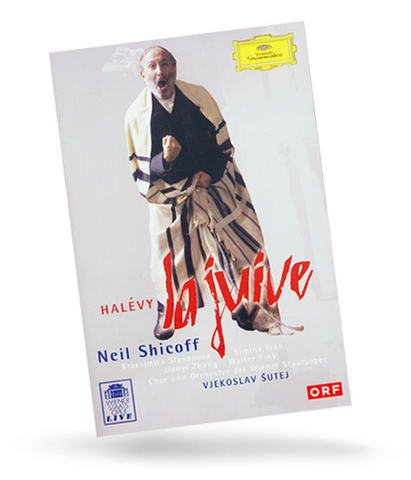
Halevy's score is everywhere melodic and powerful -- Wagner and Verdi both praised him. The opera is in French and is an example of "grand opera," a particularly lavish style where the fates of individuals characteristically get caught up in historical events. This production has a large cast and opts for late-19th century costumes -- very effectively, as it turns out. La Juive, then, is very highly recommended. Subtitles are available in French, English, German, Spanish and Chinese.
The Very Best of English Song with Orchestra is a follow-up to EMI's earlier compilation The Very Best of English Song and comprises three CDs of tracks from previously issued recordings. It's good value if you like that sort of thing. There's Vaughan Williams's On Wenlock Edge, Five Mystical Songs and Songs of Travel, Benjamin Britten's Serenade and Les Illuminations, plus Frederick Delius's Sea Drift, all complete. Nor are the recordings necessarily old -- the most recent, with Ian Bostridge and the London Philharmonic Orchestra, dates from 1999.
It's a sad fact, nonetheless, that this kind of art song, especially when it's in your own language, can these days be hard to swallow. It's a tradition that seems so strongly at variance with the modern world that a major effort of historical imagination is needed in order to enjoy it, even though the bulk of the items here date from the 20th century. But for those willing and able to make this effort, these CDs represent something of a treasure-trove.
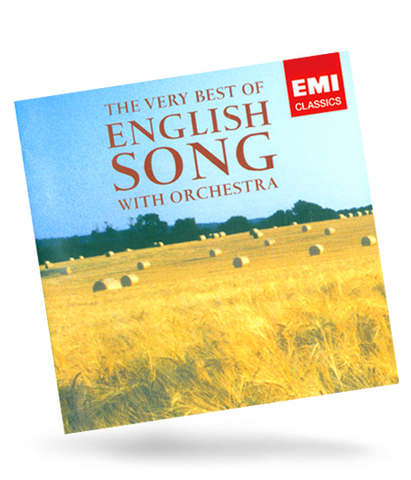
The bandoneon is in origin a German-style accordion, but in the 20th century it became closely associated with South American music, and especially, in Argentina, with the tango. On the CD Tango Sensations the classical Alban Berg string quartet, esteemed for some of their recordings if less than alluring in photographs, attempt to branch out into this Latin-style music, with Per Arne Glorvigen on the bandoneon itself, and a handful of other string players joining in where necessary.
The items featured, however, are not popular tangos appropriated by a classical line-up, but rather works written, with allusions to the popular form, by various South American composers. The CD's title comes from the first of these, four movements written for string quartet and bandoneon by the Argentine composer Astor Piazzolla (1921 to 1992). They won't send you dancing across your living-room floor -- instead they are wistful evocations of a past era when tango ruled the dance-halls of Buenos Aires, and of many European capitals as well.
On some other tracks the bandoneon is heard alone, but even there the effect is modernistic rather than roistering. The overall impression echoes the plaintive urban melancholia espoused by another bandoneon player, Dino Saluzzi, on his 1997 CD Cite de la Musique (ECM Records, 1616 533 316-2), music to muse over, and probably get depressed by, rather than leap up and dance to.
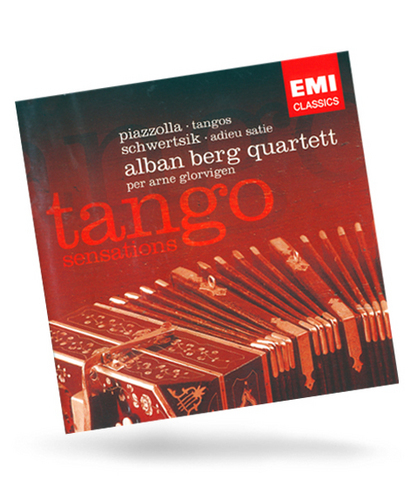
Deutschegrammophon's Rosenkavalier is not new but is currently being promoted along with the other Carlos Kleiber DVDs recently made available. It shows a performance dating from March last year with what was then a celebrity cast. With the Vienna State Opera orchestra and chorus too, this ought to have been a major success -- the reasons why it isn't are initially hard to work out.
I'm in a minority here -- most people rate these DVDs highly. And it's true Barbara Bonney is a near-perfect Sophie. Anne Sofie Von Otter's Octavian has been much praised (in, for instance, the CD set with Kiri Te Kanawa, conducted by Bernard Haitink) and Kurt Moll makes an appropriately vulgar Ochs. What's missing, in my view, is the patrician element so essential for this opera. Felicity Lott, though vocally fine, just misses this dimension in her portrayal of the Marshallin. Carlos Kleiber, too, summons great energy from his players, but I found the element of grandiloquent nostalgia that characterizes this great score absent.
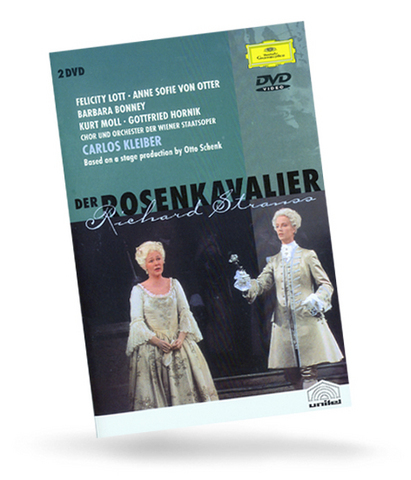

July 28 to Aug. 3 Former president Chiang Kai-shek (蔣介石) reportedly maintained a simple diet and preferred to drink warm water — but one indulgence he enjoyed was a banned drink: Coca-Cola. Although a Coca-Cola plant was built in Taiwan in 1957, It was only allowed to sell to the US military and other American agencies. However, Chiang’s aides recall procuring the soft drink at US military exchange stores, and there’s also records of the Presidential Office ordering in bulk from Hong Kong. By the 1960s, it wasn’t difficult for those with means or connections to obtain Coca-Cola from the

Fifty-five years ago, a .25-caliber Beretta fired in the revolving door of New York’s Plaza Hotel set Taiwan on an unexpected path to democracy. As Chinese military incursions intensify today, a new documentary, When the Spring Rain Falls (春雨424), revisits that 1970 assassination attempt on then-vice premier Chiang Ching-kuo (蔣經國). Director Sylvia Feng (馮賢賢) raises the question Taiwan faces under existential threat: “How do we safeguard our fragile democracy and precious freedom?” ASSASSINATION After its retreat to Taiwan in 1949, the Chinese Nationalist Party (KMT) regime under Chiang Kai-shek (蔣介石) imposed a ruthless military rule, crushing democratic aspirations and kidnapping dissidents from

Taiwan is today going to participate in a world-first experiment in democracy. Twenty-four Chinese Nationalist Party (KMT) lawmakers will face a recall vote, with the results determining if they keep their jobs. Some recalls look safe for the incumbents, other lawmakers appear heading for a fall and many could go either way. Predictions on the outcome vary widely, which is unsurprising — this is the first time worldwide a mass recall has ever been attempted at the national level. Even meteorologists are unclear what will happen. As this paper reported, the interactions between tropical storms Francisco and Com-May could lead to
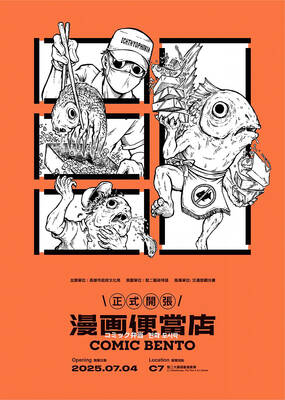
It looks like a restaurant — but it’s food for the mind. Kaohsiung’s Pier-2 Art Center is currently hosting Comic Bento (漫畫便當店), an immersive and quirky exhibition that spotlights Taiwanese comic and animation artists. The entire show is designed like a playful bento shop, where books, plushies and installations are laid out like food offerings — with a much deeper cultural bite. Visitors first enter what looks like a self-service restaurant. Comics, toys and merchandise are displayed buffet-style in trays typically used for lunch servings. Posters on the walls present each comic as a nutritional label for the stories and an ingredient